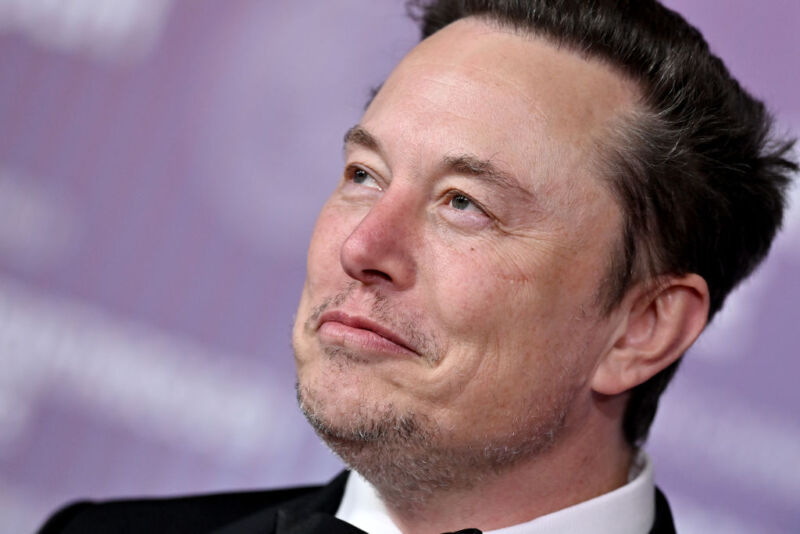
Elon Musk confirmed Monday that X (formerly Twitter) plans to start charging new users to post on the platform, TechCrunch reported.
“Unfortunately, a small fee for new user write access is the only way to curb the relentless onslaught of bots,” Musk wrote on X.
In October, X confirmed that it was testing whether users would pay a small annual fee to access the platform by suddenly charging new users in New Zealand and the Philippines $1. Paying the fee enabled new users in those countries to post, reply, like, and bookmark X posts.
That test was deemed the “Not-A-Bot” program, and it’s unclear how successful it was at stopping bots. But X deciding to expand the program seems to suggest that the test must have had some success.
Musk has not yet clarified when X’s “small fee” might be required for new users, only confirming in a later post that any new users who avoid paying the fee will be able to post after three months. Ars created new accounts on the web and in the app, and neither signup required any fees yet.
Although Musk’s posts only mention paying for “write access,” it seems likely that the other features limited by the “Not-A-Bot” program will also be limited during those three months for any users who do not pay the fee, too. An X account called @x_alerts_ noticed on Sunday that X was updating its web app text that was seemingly enabling the “Not-A-Bot” program.
“Changes have been detected in the texts of the X web app!” @x_alerts_ wrote, noting that the altered text seemed to limit not just posting and replying, but also liking and bookmarking X posts.
“It looks like this text has been in the app, but they recently changed it, so not sure whether it’s an indication of launch or not!” the user wrote.
Back when X launched the “Not-A-Bot” program, Musk claimed that charging a $1 annual fee would make it “1000X harder to manipulate the platform.” In a help center post, X said that the “test was developed to bolster our already significant efforts to reduce spam, manipulation of our platform, and bot activity.”
Earlier this month, X warned users it was widely purging spam accounts, TechCrunch noted. X Support confirmed that follower counts would likely be impacted during that purge, because “we’re casting a wide net to ensure X remains secure and free of bots.”
But that attempt to purge bots apparently did not work as well as X hoped. This week, Musk confirmed that X is still struggling with “AI (and troll farms)” that he said are easily able to pass X’s “are you a bot” tests.
It’s hard to keep up with X’s inconsistent messaging on its bot problem since Musk took over. Last summer, Musk told attendees of The Wall Street Journal’s CEO Council that the platform had “eliminated at least 90 percent of scams,” claiming there had been a “dramatic improvement” in the platform’s ability to “detect and remove troll armies.”
At that time, experts told The Journal that solving X’s bot problem was nearly impossible because spammers’ tactics were always evolving and bots had begun using generative AI to avoid detection.
Musk’s plan to charge a fee to overcome bots won’t work, experts told WSJ, because anyone determined to spam X can just find credit cards and buy disposable phones on the dark web. And any bad actor who can’t find what they need on the dark web could theoretically just wait three months to launch scams or spread harmful content like disinformation or propaganda. This leads some critics to wonder what the point of charging the small fee really is.
When the “Not-A-Bot” program launched, X Support directly disputed critics’ claims that the program was simply testing whether charging small fees might expand X’s revenue to help Musk get the platform out of debt.
“This new test was developed to bolster our already successful efforts to reduce spam, manipulation of our platform, and bot activity, while balancing platform accessibility with the small fee amount,” X Support wrote on X. “It is not a profit driver.”
It seems likely that Musk is simply trying everything he can think of to reduce bots on the platform, even though it’s widely known that charging a subscription fee has failed to stop bots from overrunning other online platforms (just ask frustrated fans of World of Warcraft). Musk, who famously overpaid for Twitter and has been climbing out of debt since, has claimed since before the Twitter deal closed that his goal was to eliminate bots on the platform.
“We will defeat the spam bots or die trying!” Musk tweeted back in 2022, when a tweet was still a tweet and everyone could depend on accessing Twitter for free.
